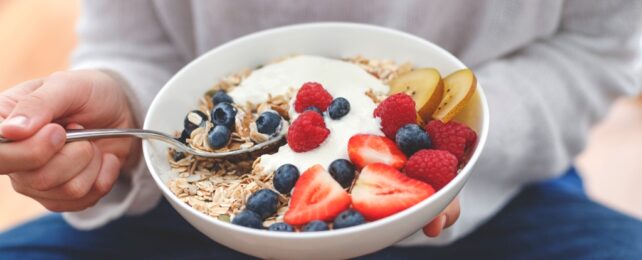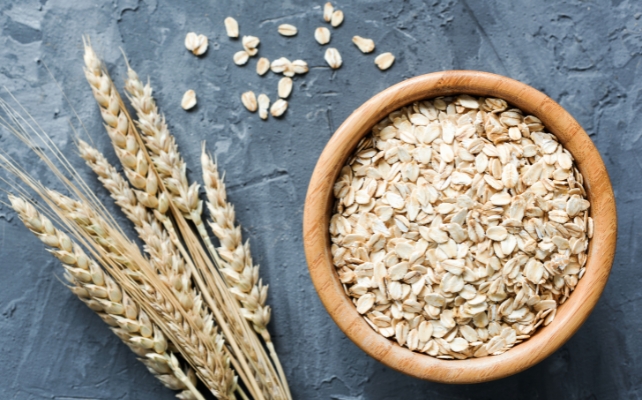
Research on the gut microbiome has triggered a 'revolution' in nutritional science, and in the last few years, dietary fiber has become the "new protein" – added to foods in abundance to feed our gut and boost our health.
A recent study on mice, however, suggests not all fiber supplements are equally beneficial.
A form that is readily found in oats and barley, called beta-glucan, can control blood sugar and assist in weight loss among mice fed a high-fat diet.
Researchers at the University of Arizona (UA) and the University of Vienna say it is the only type of fiber supplement they tested that decreased a mouse's fat content and body weight within 18 weeks.
The other fibers considered, including wheat dextrin, pectin, resistant starch, and cellulose, had no such effect, despite shifting the makeup of the mouse microbiome significantly compared to mice fed no fiber supplements.
"We know that fiber is important and beneficial; the problem is that there are so many different types of fiber," explained biomedical scientist Frank Duca from UA in July.
"We wanted to know what kind of fiber would be most beneficial for weight loss and improvements in glucose homeostasis so that we can inform the community, the consumer, and then also inform the agricultural industry."
Dietary fibers are the main source of energy for bacteria living in our guts, and yet less than 5 percent of people in the US consume the recommended 25–30 grams (0.9–1 ounce) of fiber a day.
To make up for this, fiber supplements and 'invisible fiber'-infused foods are growing in popularity. But fibers are extremely diverse, so which do we choose?

Some fibers, like oat beta-glucans and wheat dextrin, are water-soluble, meaning they are easily fermented by gut bacteria. Others, like cellulose and resistant starch, are less soluble or insoluble, meaning they stick to other materials to form stool.
Until now, writes biomedical scientist Elizabeth Howard from UA and her colleagues, "there is no study that has investigated the role of various fibers in one cohort."
To make up for this, the current study tested several forms of fiber in one cohort of mice. Only beta-glucan was found to increase the number of Ileibacterium found in the mouse intestine. Other studies on mice have linked this bacterium to weight loss.
Sure enough, long before the 10-week marker, mice fed beta-glucan showed reduced body weight and body fat content compared to mice fed other forms of fiber.
The findings align with another recent study by Duca, which fed barley flour, rich in beta-glucan, to rodents. Even though the rats continued eating just as much of their high-fat diet as before, their energy expenditure increased and they lost weight anyway.
A similar outcome was observed in mice fed beta-glucan in the new study. These animals also showed increased concentrations of butyrate in their guts, which is a metabolite made when microbes break down fiber.
Butyrate induces the release of glucagon-like peptide-1 (GLP-1), which is the natural protein that synthetic drugs like Ozempic mimic to stimulate insulin release.

"Part of the benefits of consuming dietary fiber is through the release of GLP-1 and other gut peptides that regulate appetite and body weight," said Duca.
"However, we don't think that's all of the effect. We think that there are other beneficial things that butyrate could be doing that are not gut peptide related, such as improving gut barrier health and targeting peripheral organs like the liver."
Far more research is needed before these results can be extended to humans, but the findings suggest that some fibers may be better suited to weight loss and insulin control than others.
The study was published in the Journal of Nutrition.
An earlier version of this article was published in July 2024.